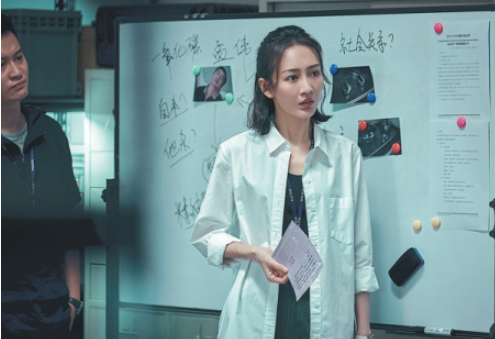'Hunting' finds its target


"A gun is pointed at the police officer when the villa's gate opens. The fugitive holding it says: 'At home you are the one who points a gun at me. But now it's my turn'."
Liu Xin explains Chinese police's overseas missions are often more challenging and dangerous because of different firearms laws and extradition's complexity.
He learned a lot from speaking with police who've brought to justice fugitives who've fled overseas.
"I heard that police officers usually wrap a blanket around suspects' handcuffed hands and sit with the person in the last row on an international flight. When the plane lands, they remove the blanket and escort the suspect to armed colleagues waiting on the ground," Liu Xin says.
Actor Wang Kai says in a WeChat interview that it was enlightening to learn about the lives and jobs of these special police, who must master finance, speak English fluently and have tactical-combat skills.
"I view them as unknown yet great heroes, who face unknown dangers in foreign lands. They use their wits to exhaustively fulfill their tasks."
Wang has previously played police officers in four TV series, including the 2013 drama, All Quiet in Peking.
But Hunting is his first portrayal of a cop specializing in extraditing financial criminals.
"A police officer I spoke with recalled his experience pinpointing the location of a suspect in Southeast Asia. The weather was very hot. He was the only agent dispatched there," Liu Xin says.
"He had to figure out many ways to keep the suspect from fleeing again, given that Chinese police don't have law-enforcement authority overseas."
Around half the scenes were shot in foreign countries, mostly Kenya and the Czech Republic, over 59 days.
Wang studied English intensively for the film.
Liu Xin says the fact Wang could sometimes assist in translating for locals proves he's a quick language learner.
"The overseas schedules were tight, making the shooting sets like 'battlefields' every day," Liu Xin says.





































